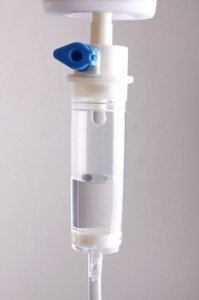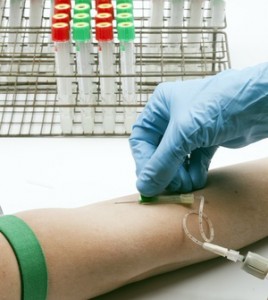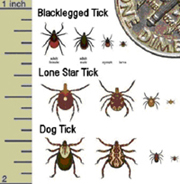 Here are the most common questions we get asked during a patient’s first visit. Many patients bring pages from the Internet as reference, and most have already been to their primary care physician at least once. You may also want to read Common Myths about Lyme.
Here are the most common questions we get asked during a patient’s first visit. Many patients bring pages from the Internet as reference, and most have already been to their primary care physician at least once. You may also want to read Common Myths about Lyme.
Can you determine whether I have Lyme disease or not?
The short answer is yes. We utilize a number of scientific testing methods.
Can you tell if I have Lyme disease by my symptoms?
No. The later symptoms of Lyme disease are very common for many different illnesses, so we use a more scientific testing approach. The same is true for your Lyme disease cure. Just because you feel better doesn’t mean you are cured. We want scientific evidence that the organism is gone.
What if I don’t have Lyme disease, but still am ill?
Many real illnesses are overlooked because of an incorrect diagnosis. As physicians, we will work with you to what you do have and help you get well. We don’t just treat Lyme disease, however it is a specialty of ours.
Can you have Lyme disease without symptoms of Lyme disease?
Not that we have ever seen. If you have Lyme disease bacteria in your body and you’ll be ill in some manner.
Are you sponsored or funded by pharmaceutical companies to sell their drugs?
No.
Is you lab work done at your office?
No. Our lab work is done mainly by two labs that specialize in Lyme disease, Medical Diagnostic Labs and IGeneX. They have excellent quality control.
Why is there so much medical controversy over the treatment of Lyme disease?
There’s not enough space here to go into it. However, from our own experience, one constant with Lyme disease is that for the great majority of people, if you cure the infection, even if they have severe problems, they get well, as opposed to getting just better. It’s one of the things that keeps us going. We have done amazing things for patients that they would never have achieved with another physician.
Do you believe chronic Lyme disease can be cured?
Yes. Late stage/chronic Lyme is often the impact of not completely getting rid of the Lyme bacteria. Again, if you have the Lyme infection, in our experience, you can be cured 88% of the time, whether it’s late stage or not.
Is Lyme disease sexually transmitted?
To the best of our knowledge, no.
Can I pass Lyme disease on to my children?
Generally, no, but recent research has suggested the possibility of passing Lyme disease through breast feeding.
However….don’t forget that your children can pick it up from ticks also.
Do you treat children?
Yes. About 30% of our patients are under 21. The process is mostly the same except that the antibiotic dosage is adjusted for their age and weight.
How do you treat late stages of Lyme disease?
Generally, due to the fact most patient’s central nervous systems are affected, they must be treated antibiotics that can reach the brain. At the present time, this means that all treatments for Lyme disease should consist of intravenous antibiotic therapy.
How do you treat early stages of Lyme disease?
Generally, we treat with oral antibiotics. We monitor patients to make sure their Lyme disease does not develop into late stages. You may also want to read Common Myths about Lyme.



